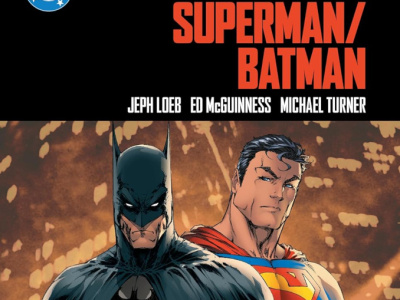William James Cuffe of All the Fun Stuff in Katy, Texas saw the news of the new Marvel terms (see 'New Marvel Trade Terms Rationalize Order Cycle' and 'Marvel, Diamond Discuss Terms Change') and sent in this overview of Marvel's recent history:
It's not so much about money, but about control...
Marvel has consistently demonstrated an unending need to control its products in every facet of the industry, from creation through distribution to point of sales. Remember the Heroes World disaster, when Marvel tried to 'cut out the middleman' and distribute its products on its own? The direct result of that fiasco was the bankruptcy of the afore to mentioned comic book distributor, the collapse of Capital City Distribution, and countless retailers either closing up in droves or shifting thier market focus to games and other collectibles (Note that DC also had a hand in all of this and shouldn't be viewed as uninvolved, but the bottom line is that Marvel was the instigator). The brute force attempt at control failed, so they've moved on to newer tactics.
Then Marvel instituted it's 'No Reprint' policy as a way of artificially inflating the demand for its collected graphic novels, and build up false hype about the popularity of a title -- 'If it's already being reprinted three months later in a graphic novel, it must be high in demand!' Ultimate War sold for $2.25 an issue; Ultimate X-Men Vol. 5: Ultimate War TPB will sell at $10.99. How can a small retailer compete when mass market chains like Barnes & Noble will be buy the TPB by the pallet and undercutting with a massive price cut? Marvel still makes the same amount of money, no matter the source -- but this way, it has more control over print runs and distribution.
Bill Jemas' repeatedly hostile attitude towards retailers -- with his thinly veiled 'Marvel-IQ' comments -- demonstrate he simply does not care about a fair playing field. Did anyone honestly clamor for Mekanix. According to Jemas, it was a 'no-brainer' because it was an X-title. Guess what? Most customers I have didn't even realize it was about Kitty Pryde until I pointed it out to them! And then they still weren't interested. Then there was B-Sides. I sold issues of #1 just on the novelty of the title, but the subsequent issues are slowly rotting on my shelf. Marvel is working on the conceited assumption that retailers will buy anything they produce just in case any one title becomes the next big thing. This is not the commodities market, yet Marvel would like to manipulate its products' availability to foster a mindset of speculation.
Under Jemas' auspice, Marvel has begun a campaign of hit-and-run tactics. Examples of such are soliciting more than one issue of a title per month (such as Namor), or making a five issue mini-series bi-weekly (such as X-Men: Ronin)... These tactics force retailers to make judgments out of fear of shortages before they can ever get feedback from customers whether or not they are interested in any particular title. We have to commit a large portion of our monthly funds on the off-chance there will be a large demand on an untested product. Namor is untested (it's been over seven years since he had his own on-going title) and X-Men: Ronin is untested. Indeed, the entire 'Tsunami' line is a hedge bet that the anime craze will help boost Marvel's flagging sales. Kai Asamiya may be a fan favorite in anime and manga, but I've had customers cancel their subscriptions to The Titans and Uncanny X-Men expressly because of his art. If they wanted manga, they'd buy manga.
And now, we are given the 'New' Marvel. The new discount calculation isn't measured by a retailer's monthly order, but by the average monthly order for the previous year. While that may sound good for those retailers that have made steady, equivalent orders from month to month, to anyone that ever order a 'light' month for Marvel they have been penalized. It's the way averages work -- any one low amount month of orders and you have to order just that more heavily the next time to make up for difference, or suffer a year-long lower discount until that low month rolls off the average. Yes, at any time up to 20 days before street date we can alter our order. What I see is a habit of over-ordering and last minute cancellations, which if goes on for very long Marvel will just invoke one of the various cancellation clauses festooned in the agreement.
Marvel isn't merely glutting the market to make more money, they're doing it to tie up retailer's capital in their product, trying to prevent us from spending any money on the competition. While every turn and gesture Marvel makes they insist it's to help retailers. In truth, it can be blatantly shown that such allowances further strengthen Marvel's influence in retailer orders. It's all about controlling a market share and limiting choices.
I wouldn't be surprised to soon hear of Marvel's new pricing scheme, where for a token extra discount MARVEL chooses what comics you order...







